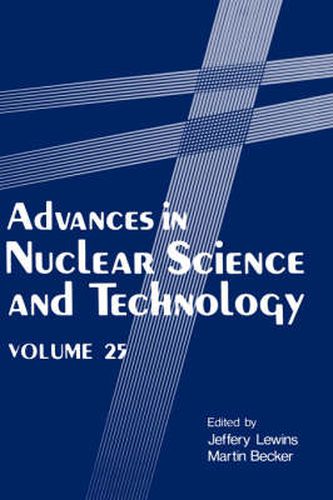Readings Newsletter
Become a Readings Member to make your shopping experience even easier.
Sign in or sign up for free!
You’re not far away from qualifying for FREE standard shipping within Australia
You’ve qualified for FREE standard shipping within Australia
The cart is loading…






This title is printed to order. This book may have been self-published. If so, we cannot guarantee the quality of the content. In the main most books will have gone through the editing process however some may not. We therefore suggest that you be aware of this before ordering this book. If in doubt check either the author or publisher’s details as we are unable to accept any returns unless they are faulty. Please contact us if you have any questions.
The present review volume not only covers a wide range of topics pertinent to nuclear science and technology, but has attracted a distinguished international authorship, for which the editors are grateful. The opening review by Drs. Janet Tawn and Richard Wakeford addresses the difficult matter of questioning sci- tific hypotheses in a court of law. The United Kingdom experienced a substantial nuclear accident in the 1950s in the form of the Windscale Pile fire. This in itself had both good and bad consequences; the setting up of a licensing authority to ensure nuclear safety was one, the understandable public sentiment concerning nuclear power (despite the fire occurring in a weapons pile) the other. Windscale today is subsumed in the reprocessing plant at Sellafield operated by British Nuclear Fuels plc and it was inevitable perhaps that when an excess cluster of childhood leukaemia was observed in the nearby village of Seascale that public concern should be promoted by the media, leading to the hearing of a claim of compensation brought on behalf of two of the families of BNFLs workers who had suffered that loss. The review article demonstrates the complexity of und- standing such a claim against the statistical fluctuations inherent and shows how the courts were persuaded of the need to propose a biological mechanism if responsibility were to be held. The Company were undoubtedly relieved by the finding.
$9.00 standard shipping within Australia
FREE standard shipping within Australia for orders over $100.00
Express & International shipping calculated at checkout
This title is printed to order. This book may have been self-published. If so, we cannot guarantee the quality of the content. In the main most books will have gone through the editing process however some may not. We therefore suggest that you be aware of this before ordering this book. If in doubt check either the author or publisher’s details as we are unable to accept any returns unless they are faulty. Please contact us if you have any questions.
The present review volume not only covers a wide range of topics pertinent to nuclear science and technology, but has attracted a distinguished international authorship, for which the editors are grateful. The opening review by Drs. Janet Tawn and Richard Wakeford addresses the difficult matter of questioning sci- tific hypotheses in a court of law. The United Kingdom experienced a substantial nuclear accident in the 1950s in the form of the Windscale Pile fire. This in itself had both good and bad consequences; the setting up of a licensing authority to ensure nuclear safety was one, the understandable public sentiment concerning nuclear power (despite the fire occurring in a weapons pile) the other. Windscale today is subsumed in the reprocessing plant at Sellafield operated by British Nuclear Fuels plc and it was inevitable perhaps that when an excess cluster of childhood leukaemia was observed in the nearby village of Seascale that public concern should be promoted by the media, leading to the hearing of a claim of compensation brought on behalf of two of the families of BNFLs workers who had suffered that loss. The review article demonstrates the complexity of und- standing such a claim against the statistical fluctuations inherent and shows how the courts were persuaded of the need to propose a biological mechanism if responsibility were to be held. The Company were undoubtedly relieved by the finding.